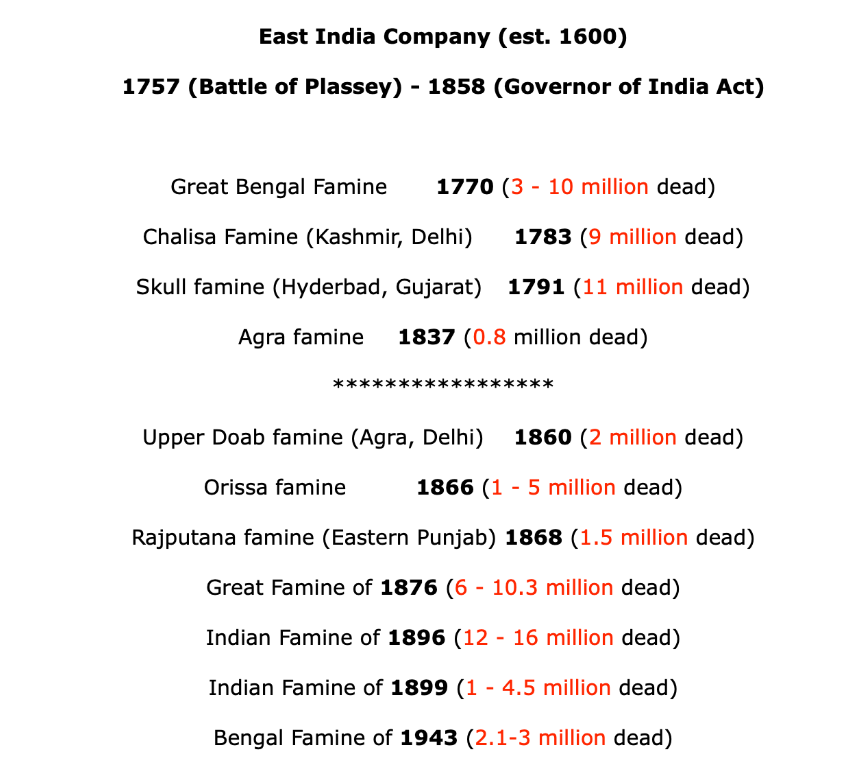East India Company
1/4
There's no tags or description
Looks like no tags are added yet.
Name | Mastery | Learn | Test | Matching | Spaced |
|---|
No study sessions yet.
5 Terms
EIC beginnings
founded 31 Dec 1600
based in London
trade company
EIC power
in just over 40 years, masters of almost all the subcontinent with inhabitants 50-60mil
Larger in size and population of the biggest european countries
1803 - captured Mughal capital of Delhi
200 000 in military (twice the size of British army)
1825 - parliament started opposing EIC due to its dangerous power
EIC & opium
transported opium to China & fought the opium wars
Seized a base in Hong Kong to safeguard its monopoly
EIC & Boston
Shipped chinese tea to Boston which was subsequently poured into the harbour. Fear that EIC would take part of the war by being deployed by UK
EIC & bloodshed
10 May 1857 - massive rebellion against employers
9 uncertain months, but eventually EIC crushes the revolution
10 000s suspected rebels killed along the bazaar towns along the Ganges river
Famines: Bangalore (1876), Jabalpur (1896), Bengal (1943) and MANY more
Caused by policies made by the EIC, particularly:
- focus on cash crops rather than food crops
- revenue policies
- exportation of food
- slow/poor response to famine & continuation of policies after EIC’s rule
